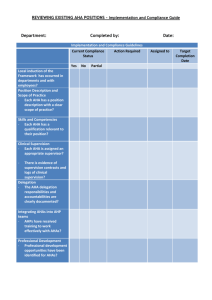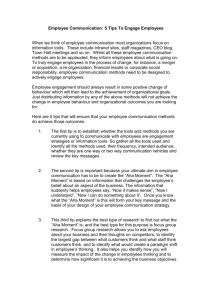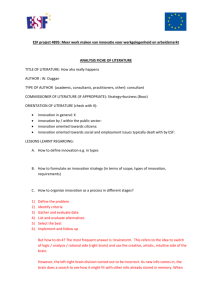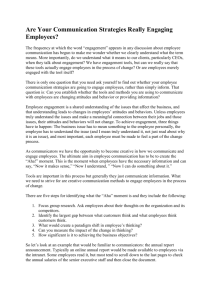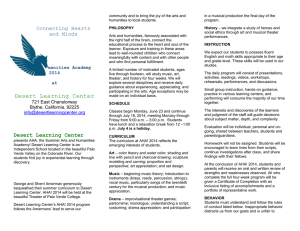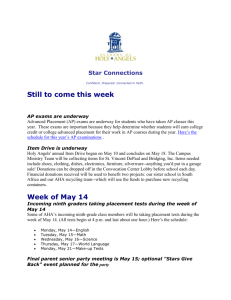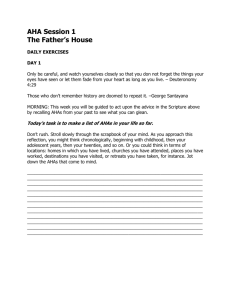Retirement Investing in a Down Market: Stay the Course The Power
advertisement
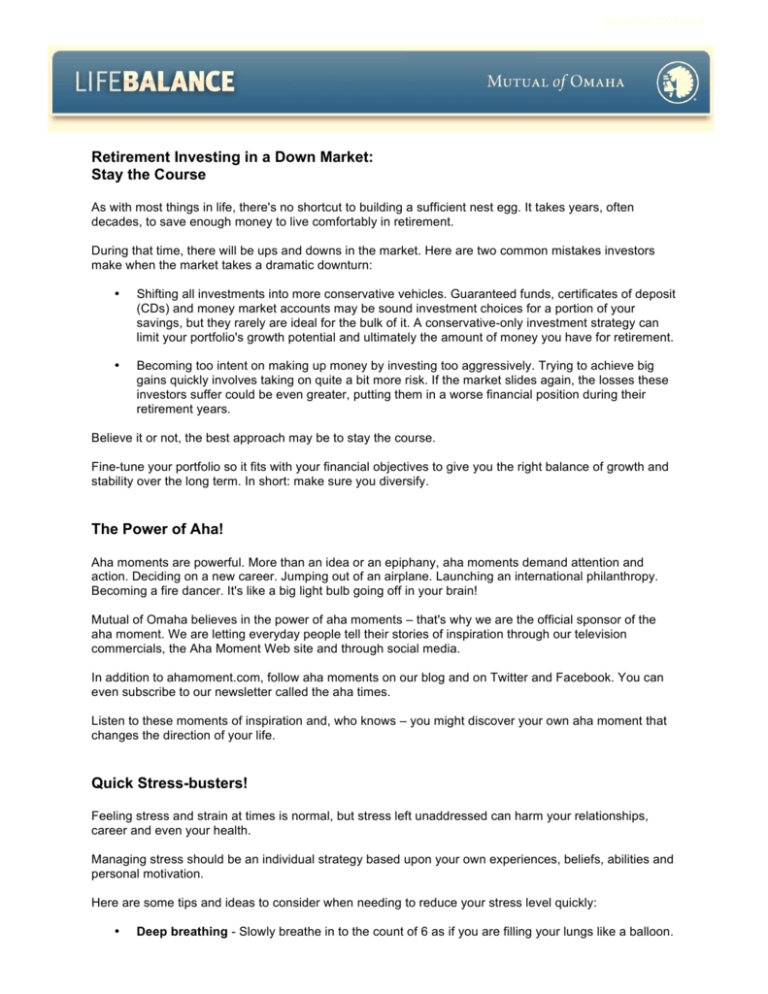
September 2009 Issue Retirement Investing in a Down Market: Stay the Course As with most things in life, there's no shortcut to building a sufficient nest egg. It takes years, often decades, to save enough money to live comfortably in retirement. During that time, there will be ups and downs in the market. Here are two common mistakes investors make when the market takes a dramatic downturn: • Shifting all investments into more conservative vehicles. Guaranteed funds, certificates of deposit (CDs) and money market accounts may be sound investment choices for a portion of your savings, but they rarely are ideal for the bulk of it. A conservative-only investment strategy can limit your portfolio's growth potential and ultimately the amount of money you have for retirement. • Becoming too intent on making up money by investing too aggressively. Trying to achieve big gains quickly involves taking on quite a bit more risk. If the market slides again, the losses these investors suffer could be even greater, putting them in a worse financial position during their retirement years. Believe it or not, the best approach may be to stay the course. Fine-tune your portfolio so it fits with your financial objectives to give you the right balance of growth and stability over the long term. In short: make sure you diversify. The Power of Aha! Aha moments are powerful. More than an idea or an epiphany, aha moments demand attention and action. Deciding on a new career. Jumping out of an airplane. Launching an international philanthropy. Becoming a fire dancer. It's like a big light bulb going off in your brain! Mutual of Omaha believes in the power of aha moments – that's why we are the official sponsor of the aha moment. We are letting everyday people tell their stories of inspiration through our television commercials, the Aha Moment Web site and through social media. In addition to ahamoment.com, follow aha moments on our blog and on Twitter and Facebook. You can even subscribe to our newsletter called the aha times. Listen to these moments of inspiration and, who knows – you might discover your own aha moment that changes the direction of your life. Quick Stress-busters! Feeling stress and strain at times is normal, but stress left unaddressed can harm your relationships, career and even your health. Managing stress should be an individual strategy based upon your own experiences, beliefs, abilities and personal motivation. Here are some tips and ideas to consider when needing to reduce your stress level quickly: • Deep breathing - Slowly breathe in to the count of 6 as if you are filling your lungs like a balloon. Exhale to the count of 6. Repeat about five times. • Relax your muscles - Note which areas of your body feel tense; take a few moments to purposefully release the tension. • Stretch - Stand up, move around, reach, bend, use rubber stretch bands if you have them. • Squeeze - Repeatedly squeeze and release a ball or other item. • Sit up straight - Good posture will help you breathe better, feel more relaxed and keep you more focused. • Drink - Hydrate your body; drink water! • Be mindful - Think only about what is in front of you at the moment; give your attention to the task at hand. You can only do one thing at a time, so focus on that one thing now. • Remember what makes you feel good - Keep pictures of your family, pets and those who make you feel happy close by; use other visual aids like posters, calendars and quotations for a quick "mind vacation" to help you feel relaxed and refreshed. Healthy Habits for your Family From childhood obesity to getting enough sleep, children today face more challenging lifestyle-related issues than ever. According to the American Heart Association, nearly one in every three children are overweight and many deal with serious health problems, such as type 2 diabetes and high cholesterol. As you begin to help your children live a healthful lifestyle, remember to lead by example and to create a plan with realistic expectations. Look to these ideas to help you create a plan to improve your family's health: • Get your kids involved in making healthful meals. Creating fun shapes, smiley faces or unusual concoctions can be a fun way to help your children learn the importance of eating a rainbow of fruits and vegetables. • Eat together once a week without distractions. Instead of watching TV, use this time to hear about your kids' day and learn what issues they may be facing. • Set realistic bedtime schedules. Avoid late-night activities and snacks that prevent a good night's sleep of eight to 10 hours. • Encourage exercise by playing with your kids. Ride a bike on a nice day, play tag or sign your kids up for a sports league. • Make room for laughter and spontaneity. If your children want to explore a new activity or food, support their decisions (as long they are safe).
